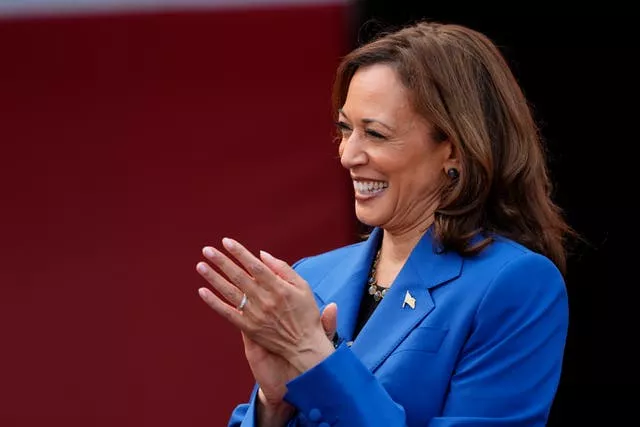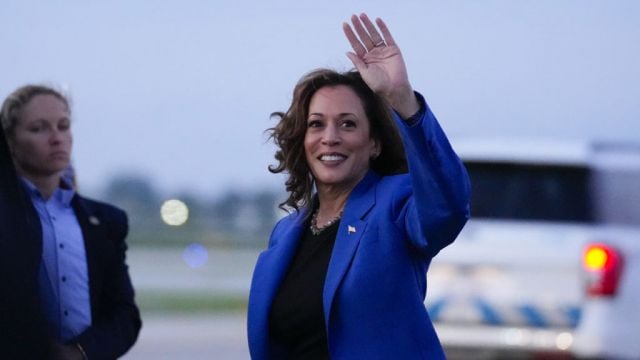Vice President Kamala Harris is entering the Democratic National Convention (DNC) with increased excitement from Democrats and a steady rise in her favourability ratings among Americans as a whole.
About half of US adults — 48 per cent — have a very or somewhat favourable view of Ms Harris, according to a new poll from The Associated Press-NORC Centre for Public Affairs Research.
That is up from 39 per cent at the beginning of the summer, before President Joe Biden’s poor performance in his debate against former president Donald Trump ultimately led him to drop out of the presidential race.
That is not just an improvement for Ms Harris but also from where Mr Biden stood before he dropped out when 38 per cent said they had a favourable opinion of him.
It is also somewhat better than the 41 per cent of adults who say they have a favourable opinion of Mr Trump.

The rise in favourability for Ms Harris comes as more Americans overall have formed an opinion about her while the Harris and Trump campaigns rush to define her nascent candidacy. The share saying they do not know enough about her to have an opinion has halved, from 12 per cent in June to six per cent now.
The latest measurement is in line with how Americans viewed Ms Harris in early 2021 when she and Mr Biden first took office. It suggests renewed positivity towards Ms Harris — the share of Americans who have a “very favourable” opinion of her has also increased over the same period — but she risks hitting a ceiling as she approaches her previous highest rating.
Since June, Ms Harris’ favourability has slightly risen among some groups that generally already favour the Democratic Party. She has seen slight increases in favourability among Democrats, independents, women and young adults under age 30.
There has been no significant movement from black adults or Hispanic adults — other constituencies Ms Harris will likely need the support of in November.
Half of adults under 30 have a very or somewhat favourable view of Ms Harris in the latest poll, up from 34 per cent in June. That comes as more young adults have formed an opinion about her, with the share of adults who say they do not know enough to say shrinking from about two in 10 to roughly one in 10.
The number of young adults with an unfavourable view of her has not changed significantly.
Ms Harris has relatively high levels of favourability among black adults, though it has been relatively steady over the last month. Around two-thirds of black adults have a very or somewhat positive view of Ms Harris.
That includes around four in 10 who say their opinion of her is “very favourable”. Black adults are more likely than Americans overall to have a favourable impression of Ms Harris.

About six in 10 non-white men and women have a positive view of Ms Harris.
Johnita Johnson, a 45-year-old black woman living in North Carolina, said she plans to vote for Ms Harris in November, but she wants the campaign to be honest and realistic about what it can promise. She has a problem with politicians, generally, who overpromise what they will be able to accomplish in office.
“If (Ms Harris) was able to do exactly what she wants to do and what she says she would do, she would do an awesome job,” Ms Johnson said. “Well, we all know that is not going to go like that. She may get to do some of the things that she wanted to do. Will she do everything? I can’t say that she will. And she can’t promise me that.”
Ms Johnson noted that while Ms Harris is a historic candidate because of her race and sex, it is not something that’s factoring into her support.
“It wouldn’t matter who it was. … As long as they are good and good to us, that’s what matters to me,” Ms Johnson said. “Yes, of course, to a lot of people, it’s exciting because she’s Black and she’s the first woman. But I’m not looking at it.”







